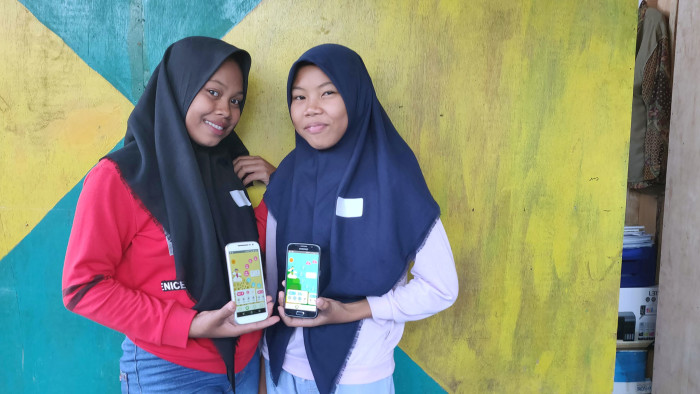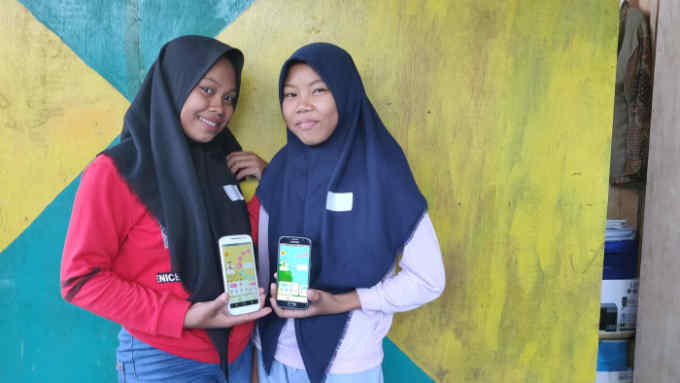App takes aim at ‘secrecy and taboo’ around menstruation

Roula Khalaf, Editor of the FT, selects her favourite stories in this weekly newsletter.
Starting their period can come as a shock for girls in the developing world; many are so ill-informed that they fear they are dying.
“If you’ve never been told about menstruation, you think the worst,” says Gerda Binder, regional gender adviser for east Asia and Pacific at Unicef, the UN agency for children. “Girls in these regions . . . find it particularly hard to know who to go to for support and advice, the subject is surrounded by so much secrecy and taboo.”
Rose Caldwell, chief executive of the UK arm of Plan International, the global charity for children’s rights and girls’ equality, agrees: “The stigma and shame that often surround menstruation are both a cause and consequence of gender inequality. Worldwide, girls are missing out on school because of their period; in rural India, for example, 20 per cent of girls leave school after they get their first period.”
These fears may soon be assuaged in Mongolia and Indonesia by a Unicef app — Oky — which helps educate girls about their bodies and understand their symptoms. The app includes a predictive algorithm for tracking periods, a visual data summary and a searchable repository of girl-friendly, evidence-based information on topics such as period hygiene, puberty and myths.
Designed to be simple to use, Oky has a game-like feel. “It provides a daily diary where girls can use emojis to log their moods, body symptoms and activity,” says Binder. This might include whether they socialised, exercised and what they ate. “Girls can also write this up in a more personal way as if it was their diary,” Binder adds.
Oky was developed and tested in collaboration with 400 girls in Mongolia and Indonesia, both remotely and in face-to-face workshops. The pilot showed that girls have less experience of digital devices than boys — navigating an app and swiping are not second nature for them, says Binder. “They learnt how to follow a menu bar, but you couldn’t assume they already knew this.”
Oky takes up minimal storage space as girls in developing countries typically have low-end phones with little room for large apps. It also works offline, because internet connectivity can be poor and data costs prohibitive. Phones are often shared, so password protection is essential, while personal information remains in the girls’ private accounts on the phone.
Unicef collects anonymised data to track how often and for how long the girls use the app and whether they improve at answering quiz questions.
The app will increase knowledge about menstrual patterns, says Binder, adding: “There is scope to inform the public health and commercial sectors about what support is needed and how policies, products and services should be shaped.”
Oky is targeted at girls aged nine to 15, and can be accessed without signing up — a feature aimed at providing general information for fathers and brothers, Binder says. “We hear a lot about boys and men wanting to understand more about what is still too much of a secret, so that they can provide more support.”
Among the social taboos girls face are that menstruation is dirty, impure and that women should live outside the family home for five days (Nepal), and should not go out (Philippines). In Cambodia it is customary to keep the first sanitary pad, and in Indonesia girls are told not to eat pineapple, eggs, peanuts, beansprouts and sweet, sour or spicy food. One 14-year-old was told that while on her period she should not pray, fast or wash her hair.
Some girls who have helped test Oky have reported realising that periods are normal and losing their sense of shame about menstruation.
Binder says that girls have suggested enhancements for the app including suggestions on what kind of clothes to wear and what food and drinks to consume during their periods. Another potential addition is a chatbot to provide personalised advice in response to questions on intimate topics. “The chatbot would be like a private conversation, using AI to help it understand what girls are asking,” says Binder.
Oky will be free to download on Google Play and users will not require an email address. Coronavirus pending, the launch is scheduled for May 28 on Menstrual Hygiene Day, a global initiative aimed at raising awareness and changing negative social attitudes towards periods.
Unicef hopes commercial, non-profit and public sector partners will develop Oky in countries such as Kenya, Tajikistan, Brazil and Pakistan, possibly alongside programmes on health, education, water and sanitation.
Oky is written in open source software so that it can easily be adapted and integrated with other apps.
“Menstrual health, education and dignity are critical if girls around the world are to live their lives and attend school without shame or insult,” says Caldwell. “We must end the stigma and taboo around periods, and ensure girls have the information they need to feel in control of their own bodies. This app should make a welcome contribution to both of these areas.”

Comments